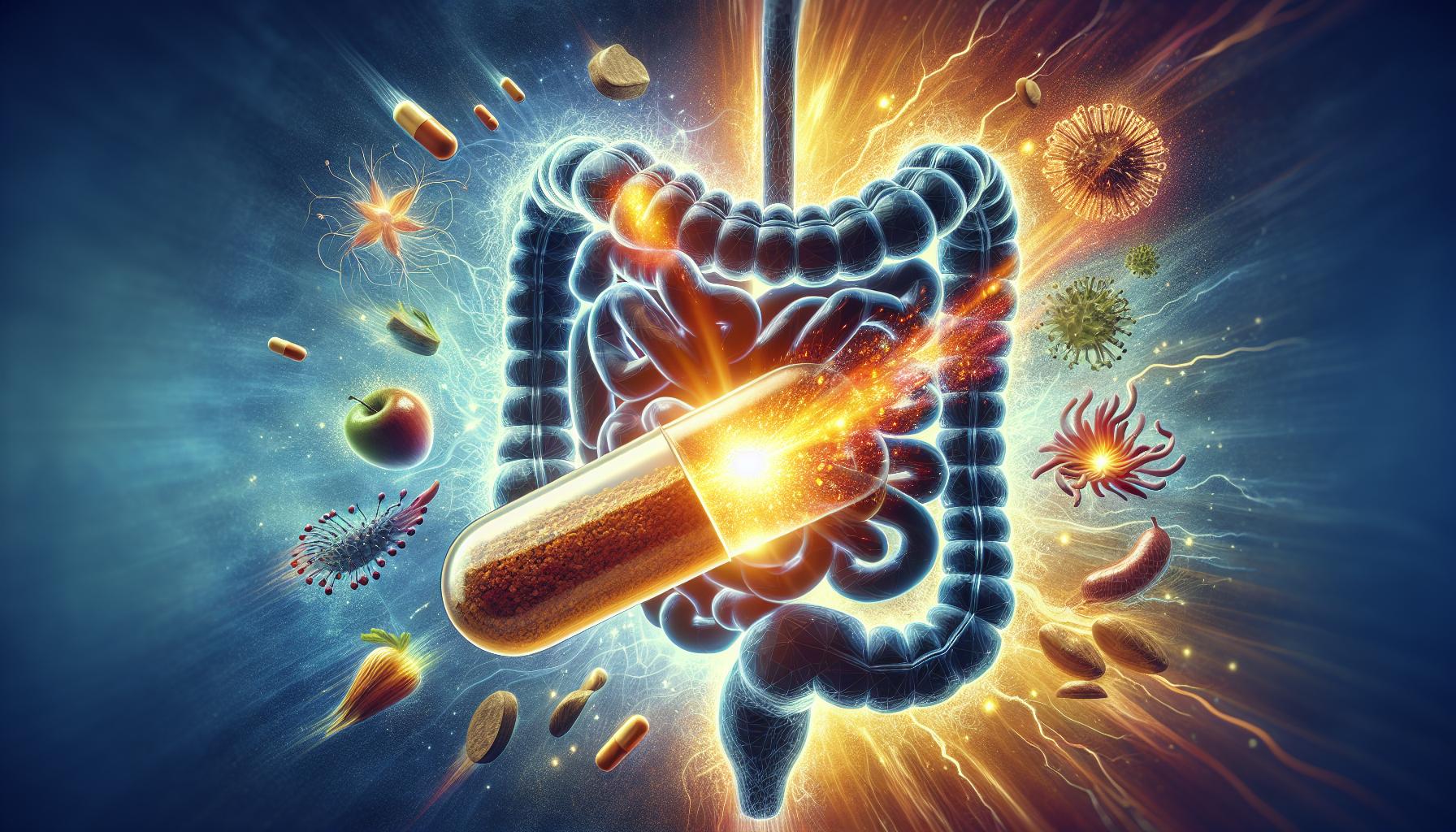
Introduction
Why do I need digestive enzymes? An intriguing question, and one which we’ll answer exhaustively in this article. Briefly put, digestive enzymes are crucial for overall health as they facilitate the breakdown and absorption of nutrients from our food. This seemingly simple yet vital process is responsible for the energy and nourishment your body needs to function. In this article, we’ll delve deeper into the importance and working of digestive enzymes, the repercussions of their deficiency, and how you may boost their production naturally.
Why Do I Need Digestive Enzymes?
You need digestive enzymes because they play a crucial role in breaking down the food you eat into nutrients that your body can absorb and use. These enzymes help digest proteins, fats, and carbohydrates, facilitating nutrient absorption in the small intestine. Without adequate digestive enzymes, your body may struggle to break down food properly, leading to nutritional deficiencies, digestive discomfort, and symptoms such as bloating, gas, and indigestion. Ensuring you have enough digestive enzymes supports overall digestion, nutrient uptake, and gut health.
The Role of Digestive Enzymes
Digestive enzymes come off as quite the unsung heroes of your bodily process. As fundamental facilitators, they are tasked with breaking down the food you munch into smaller molecules the body can absorb as nutrients. Proteins get chopped into amino acids, carbohydrates into sugars, and fats into fatty acids.
The Variety of Digestive Enzymes
Not all digestive enzymes are cut from the same cloth - each has a niche, a specialty, if you will, in your digestive process. Lipase, amylase, and protease, as antithesis to each other, contrive to break down fats, carbs, and proteins respectively, while lactase makes light work of lactose- a sugar in dairy products.
The Aftermath of Enzymes Deficiency
If there were ever a ‘Catch-22’ in a bodily function, it’d be this - we need nutrients from food for our bodies to function efficiently, and yet without enough digestive enzymes, we can’t absorb these very nutrients. You see, when our bodies lack the necessary digestive enzymes, we encounter digestive discomforts– gas, bloating, constipation, diarrhea, and general malaise. Cue the practicality of digestive enzymes.
Boosting Enzymes Through Diet
Like keys to unlocking nutrition from food, digestive enzymes are essential; thankfully, like switching on a light, they can be boosted naturally. Consuming a balanced diet, rich in fruits, vegetables, and fermented foods, is like hitting the bullseye in a dart game of digestive health.
The Quintessence of High Enzyme Foods
When it comes to stimulating the production of digestive enzymes, few things compare to a diet rich in high enzyme foods. The representative squad of these foods includes pineapples, bananas, avocados, mangos, and kiwi. Meanwhile, fermented foods like kimchi, yogurt, and sauerkraut serve as excellent players in the enzyme game.
When To Consider Supplements
In scenarios where a healthy diet and lifestyle improvements can’t settle the score, enzyme supplements may prove useful. Often recommended for those with particular health conditions or food intolerances, they act as the crowning gem atop your efforts for better digestive health.
Conclusion
To wrap it all up with a neat bow, the implication is simple and clear: Digestive enzymes function as the Sherlock Holmes of your digestive system, deciphering the complex codes of proteins, fats, and carbs to procure nutrients essential for your well-being. By making conscious decisions, like adopting a diet rich in enzyme-friendly foods, you can ensure these useful workers are in ample supply in your system.
Frequently Asked Questions
1. What are the symptoms of digestive enzyme deficiency?
The common symptoms are gas, bloating, constipation, and diarrhea. If these persist, it’s best to consult a healthcare professional.
2. Can digestive enzyme supplements be a permanent solution?
Enzyme supplements can aid digestion, but they shouldn’t replace a well-balanced diet and a healthy lifestyle.
3. Can you naturally increase digestive enzymes?
Absolutely! Some fruits and fermented foods naturally support the production of digestive enzymes.
4. What happens if digestive enzymes are not working correctly?
An impairment in digestive enzymes’ functioning could lead to nutrient malabsorption, resulting in various digestive discomforts.
5. What are some foods that are good sources of digestive enzymes?
Some fruits such as pineapples, bananas, kiwis, and avocados are recognized for their enzyme-boosting properties. Fermented foods like yogurt, kimchi, and sauerkraut are also excellent in promoting enzyme health.

